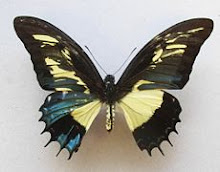I wasn't looking to get inspired by my homework tonight, considering the queue of remaining assignments, but I did.
On the first day of Intro to Environmental Studies, the professors asked the students to tell the class about their favorite place. I didn't raise my hand: The favorite places were all in the "wilderness" somewhere, and at the time I was severely and pleasantly lost in my webfic addiction. My favorite place is Salt Lake City. This is where I became myself, crawled out of the darkness that was my life in high school, stuck in a box-shaped room in the suburbs with nothing but my computer screen and my hallucinations for guidance.
Oh, and a melodramatic teenage depression.
But no matter that my love for this place arose from my coming of age (and increased through familiarity, of course)--it's still a deep, raw affection, sometimes even a need, a sense of home--"home is where the heart is," but my loved ones live far from where I feel most at home. Home is where the self grows strongest.
My class readings for the day have validated my attachment to an urban setting: two readings discussed urban ecology, urged that we consider cities as ecosystems, not malign them as inferior antitheses of nature; the other reading discussed nature writers.
Nature writers, Trimble claims, listen to their subject, acknowledge it as the authority instead of identifying themselves as experts.
What would it be like to observe Salt Lake in this way?
The cars come first to my mind. They are the loudest, and the most visibly numerous agents in the city. The buildings and roads, more invisible to a human observer, perhaps deserve first mention. The changes in the contours of the earth wrought by construction, like the compacted terrace my house sits on, overlooking 13th East, which corresponds, I've heard, to a fault line.
The animal life. The rodents scurrying in scraps of woods around Emigration Creek on Westminster campus, or in the native plants and imported rocks of a xeriscaped yard. One crawled into my house a week or so ago; I saw it in several places over the course of the day, haven't seen it since. I hope for its sake it didn't fall prey to my roommate's neurotoxin trap, and part of me resents my failure to replace the poison with humane traps. Maybe I will talk to my roommate about that.
Spiders are more common indoor companions, and on the campus, box elder bugs. There must be an astonishing array of smaller life forms that I don't notice.
Invasive and nonnative species fascinate me. They thrive in the urban landscape--does that give them the right to colonize it? A fellow student in class thinks so, that the disturbances of modern human society will lead to a new equilibrium, another step in the course of evolution.
Of course the loss in the meantime may be devastating, the cost too high. I don't know the science to inform this normative question.
The weather, of course, is a major part of our ecosystem. In the past week we went from shining snow cover for several days to warmth and rain scattered with hail today. This effects the transportation patterns of the human and vehicle populations of the city: I was among the few bikers in the hail, although many have adapted to the snow--and even the inversion. I passed a fellow cyclist who wore a breath mask. I think I may adopt this innovation.
The internet itself is an interesting device: I can use it to find the experiences of other cities, geographically arbitrarily far away, with the innovation I'm considering. They can ship me the product if I find out other people consider it useful.
The light--including the light pollution--is among the most striking features of this city. City light on clouds at night. Stars drowned out. Dusky light caught between snow and cloud cover, the in-between world surreally bright and edged in orange-blue.
In Sustainability & Consciousness last semester, we talked about "going out into the woods alone"--and how unbearably lonely the first few days could be. Yet I ghost through the city, often going many days without a meaningful or prolonged conversation. It wears on me, especially when (as today) I've had contact with another person, the contrast showing up the loneliness. Solitude is not a requisite condition for nature writing or observation: some of the famous nature writers traveled with geologists or biologists to give their journeys direction and information. But solitude is a common condition. I wonder if I can turn mine into observation as well.
Monday, January 17, 2011
Subscribe to:
Comments (Atom)



